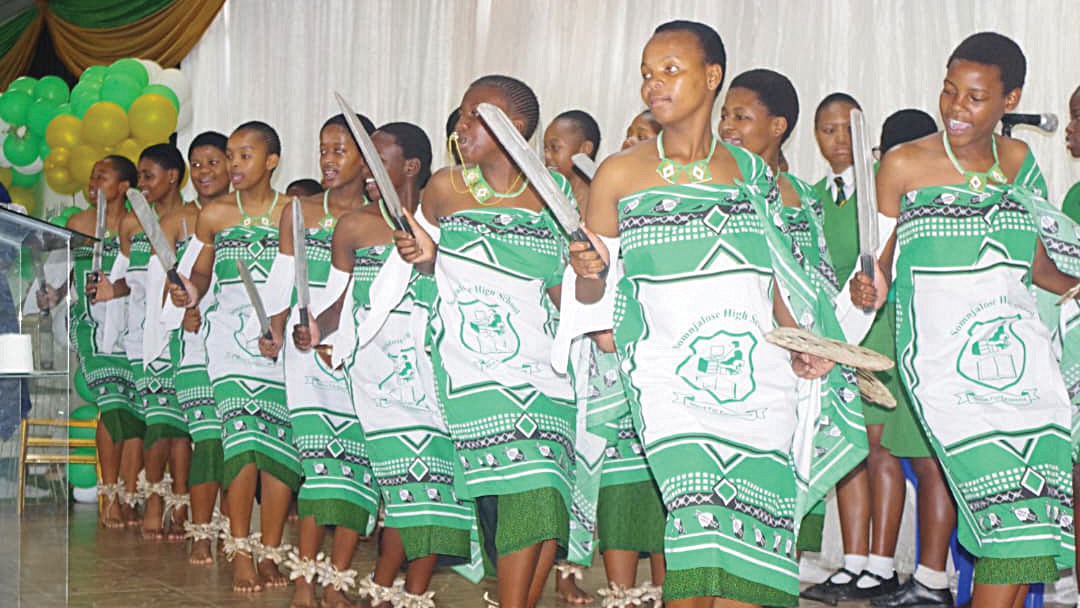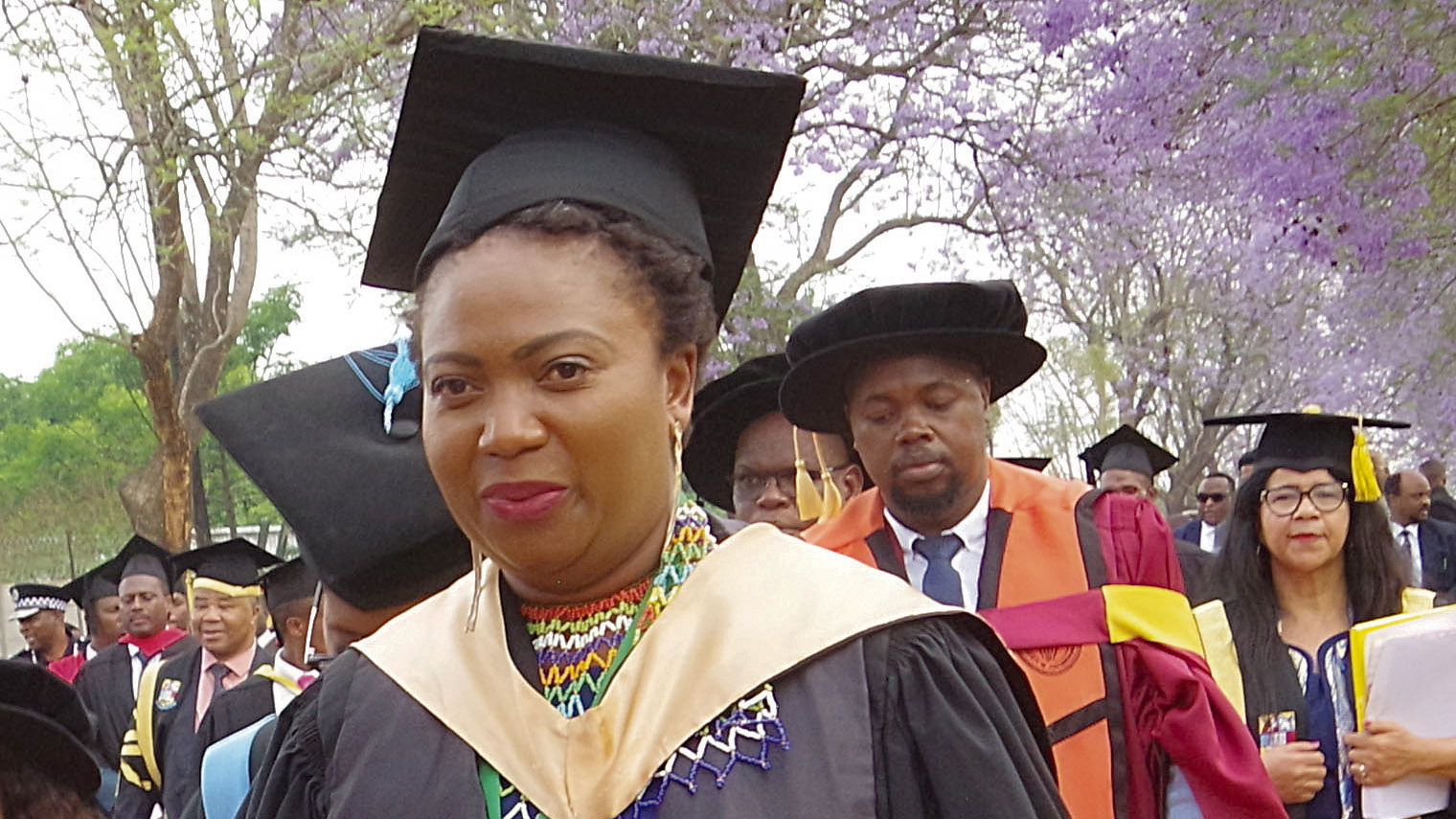
MBABANE – Traditional attire is now officially recognised as part of the school uniform in all schools across the country.
This was confirmed by the Principal Secretary (PS) in the Ministry of Education and Training, Nanikie Mnisi, who stated that learners are permitted to wear their cultural dress at school as an expression of national identity and pride.
“Yes, it is official. Pupils are permitted to wear traditional attire in all schools across the Kingdom of Eswatini. They can also select a day on which pupils may dress in their cultural wear,” Mnisi affirmed.
She made these remarks when asked for clarification following Somnjalose High School becoming the first to formally introduce traditional attire as part of its school uniform. The school launched this initiative during the Speech and Prize Giving Day last Friday. The event was officiated by the Minister for Education and Training, Owen Nxumalo, who attended alongside Mnisi.
PS Mnisi indicated that the ministry fully supports the initiative and views it as an important step in promoting cultural pride among learners.
“We encourage pupils to love and embrace their culture, not only during the annual Culture Day. They are gradually losing touch with their roots. Many African communities take pride in their national dress — they wear their traditional scarves or other cultural outfits as symbols of love for their heritage and patriotism,” she explained.
Mnisi further stated that a formal communication would be sent to all schools within the week to confirm that traditional attire is permitted as part of the school uniform policy. She clarified that while the standard uniform would remain in use, schools have the flexibility to decide how to incorporate traditional dress — whether for specific days, special occasions, or cultural events — provided it aligns with school regulations and maintains a sense of dignity.
The PS emphasised that the ministry’s aim is not only to promote culture but also to reinforce discipline, self-respect, and unity among learners.
*…
... SNAT has some reservations
MBABANE - The National Association of Teachers has expressed concerns that this might cause problems if not well implemented.
In an interview yesterday, Lot Vilakati, SNAT General Secretary, stated that there was a possibility that some pupils might abuse the initiative, thereby creating challenging working conditions for teachers. “Traditional attire was once permitted in schools. We observed some pupils, in particular, girls making their attire too short, which made it difficult for teachers to conduct lessons. I believe the ministry should focus on other priorities, such as training secondary school pupils for the proposed Competency-Based Education (CBE) and the integration of Artificial Intelligence (AI) in schools,” he said.
Vilakati noted that, to the best of his knowledge, no stakeholder meetings had taken place regarding the donning of traditional attire by pupils in schools. He expressed the view that the introduction of traditional attire was likely to be met with rejection from stakeholders. “Schools are governed by law, so nothing can be done outside the legal framework. What if we challenge the ministry on this matter through legal channels?” he asked.
*…
Good move - traditionalists
MBABANE - Traditionalists have welcomed the latest development, while urging the Ministry of Education and Training to exercise caution.
In an interview, Two Minutes Shongwe said if there is anything good the ministry has ever done, it is the introduction of traditional attire in schools.
Shongwe expressed the view that the development is positive in the sense that it helps define who emaSwati are to the wider world.
However, Shongwe advised that it would be prudent for the ministry to establish clear conditions regarding the traditional attire, to prevent misuse and disorder.
He envisaged a situation where pupils, particularly those who have undergone initiation, might abandon school uniforms— which are part of the school requirements— in favour of traditional attire.
He emphasised that the ministry should specify what is to be worn, how and on which days, so that pupils do not dress as they please in the name of traditional attire.
“When you talk about traditional attire, you mean a respected garment that has defined emaSwati from inception. It should be an attire that upholds the identity of emaSwati, so it is very important to attach
*…
Communiqué underway- PS
MBABANE - Principal Secretary in the Ministry of Education and Training Nanikie Mnisi says a communiqué will be formulated to provide guidelines.
According to Mnisi, the communiqué will outline how schools can manage the implementation of the new policy. She said it will specify acceptable attire, ensure decency and maintain uniformity on designated days.
“We want to ensure that schools implement this properly, with respect for both culture and the learning environment,” she stated.
Mnisi also indicated that the ministry is yet to engage Regional Education Officers and school inspectors to assist in monitoring and supporting the implementation process once the directive is issued.
The Ministry of Education and Training expressed hope that the policy will inspire more schools to promote cultural learning, which is part of the broader national values enshrined in Eswatini’s education philosophy.
*Full article available in our publication

.jpg)
